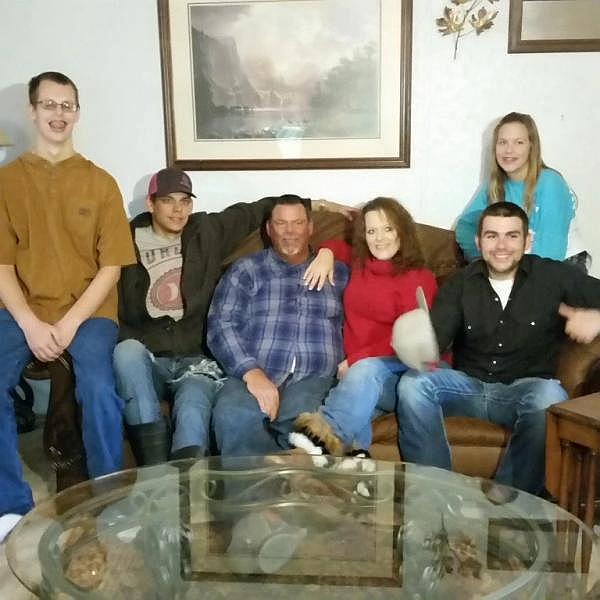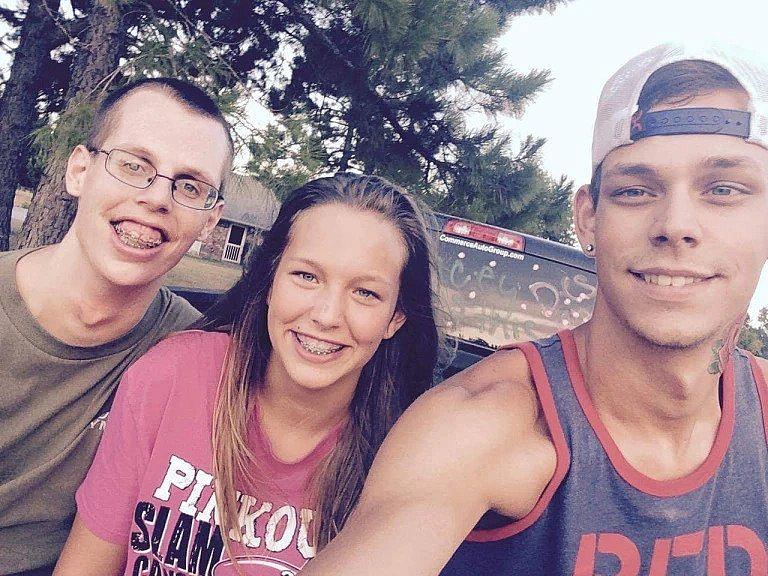A state hospital death in restraints and seclusion: What happened to Justin Reeder?
This project was produced as a project for the USC Center for Health Journalism's 2021 National Fellowship.
Other stories by David Barer and Josh Hinkle include:
Mental competency consequences: the hidden, unreliable data Texas tracks… or doesn’t
Wrong races, hidden names among data challenges our team faced with jail mental health project
Austin court’s redirection of those committing low-level crimes could be saving taxpayer money
Mental Competency Consequences: The Hidden and Unreliable Data Texas Tracks — Or Doesn't
State of Texas: Leaders consider ‘consequences’ of not tracking state hospital waitlist data
‘Horrifying’ wait times for state hospital beds, official says
State mental hospital backlog grows, new record exceeds 2,500 waiting in jail
Jail waitlist for mental health help hits new record. This plan proposes a statewide fix.
Despite waitlist record, leaders keep pushing ‘Eliminate the Wait’ plan for state hospitals
Thousands waiting in jail for state hospital beds, is help coming?
AUSTIN (KXAN) – Mandy Reeder has been left devastated and baffled by the loss of her eldest son who died in North Texas State Hospital in September.
Justin Reeder, 32, was on the autism spectrum, developmentally delayed and had a mental illness – diagnoses that often lead people to live solitary lives removed from their community, but not Justin, his mother said.
Before his family sought help and placed Justin in the state hospital system through a civil commitment, he had a job. He had a girlfriend. He had “probably 100 medals” from the Special Olympics, and he was the center of attention in his family’s home, Mandy said.
Justin, whose father, Eric, described him as his “little buddy” and “shadow” – always by his side.
Justin, whose sister, Anna, said he never missed her basketball games and was the team’s number one fan.
Justin, whose brothers, Alex and Jonathan, remember his “heart of gold” and how proud he was of his first paycheck.
Justin, who died strapped to a restraint chair alone in a seclusion room in a state hospital, according to medical records obtained by KXAN.
The grief “hits you in waves,” Mandy said.
Mandy spoke with KXAN by phone from her family’s hometown of Pickton, a Northeast Texas hamlet. She said she’s been searching for answers since Sept. 18, the day a Texas Health and Human Services Commission employee called to relay the news.
The Reeder family from Northeast Texas. Justin Reeder, wearing a brown shirt on the far left. From left to right: Justin, Jonathon "Moose," Eric, Mandy, Alex and Anna. Courtesy Mandy Reeder.
“Nobody dies in a restraint like that,” said Mandy, a nurse. “It just doesn’t happen like that.”
KXAN has obtained hospital records and observation notes from the night of Justin’s death from Mandy. The records shed some light on a fatal incident within Texas’ understaffed state hospital system where little information is made public about patients, even when they die.
The exact circumstances around Justin’s death remain unclear. Due to medical privacy laws, HHSC would not confirm or deny Justin was a patient in a state hospital or answer specific questions about his death.
HHSC provided the following statement: “When there is a death on a state hospital campus, we thoroughly review what happened in the events leading up to and after the death. If there is any suspected abuse, neglect or exploitation, reports are made to HHSC Provider Investigations, the HHS Office of Inspector General and local law enforcement, if criminal activity is suspected.”
The Texas Department of Public Safety and Vernon Police Department have been involved in the case, according to records obtained by KXAN.
A downward spiral
For eight years before he entered the state hospital system, Justin had been living at home with his parents. Despite his mental impairments, he was thriving, Mandy said.
Throughout Justin’s life there were times when he would experience a “cycle,” or period where his medications weren’t balanced or effective. He would go to a hospital and his medications would be recalibrated. When COVID hit, Justin was “thrown way off,” Mandy said.
He couldn’t participate in his normal activities, which unsettled him. Leading up to his time in the state hospital, Mandy said his medication had become less effective. Justin was combative and had aggressive outbursts she said he couldn’t control. About two years ago, the Reeders decided to place him in the care of a state hospital.
Justin Reeder, left, with his younger sister, Anna, and younger brother, Jonathon "Moose" Reeder. Justin's family said he was the funniest family member and the center of attention in the home. Courtesy: Mandy Reeder
Once Justin entered the state hospital system, things went downhill, Mandy said.
He started in Terrell State Hospital, about 30 miles east of Dallas, his mother said.
When Justin’s condition didn’t improve, Mandy said, he was later moved in March 2021 to the Vernon campus of North Texas State Hospital. Vernon, near the Texas-Oklahoma border, is home to a maximum-security facility for mentally incompetent people often charged with felonies and considered dangerous.
Justin did not fit in that category.
“He wasn’t like your average person that you would see in Vernon. He didn’t have a case against him,” Mandy said. “He didn’t have anything, you know, legal at all.”
Due to COVID restrictions, the family didn’t visit Justin for extended periods. They talked to him and staff every day on the phone but hadn’t seen him for more than a year, Mandy said.
“It was very hard for us to monitor because Justin didn’t articulate very well on the phone, his needs or his concerns or anything,” Mandy said. “If you were in person with him, you could get a better idea of what’s going on. And we couldn’t do that.”
Mandy said she was disturbed by Justin’s downward spiral and that he was being put in “mechanical restraints” – a chair with a “four-point restraint, ankles and wrists.”
Justin Reeder won numerous Special Olympics medals. Reeder dies in North Texas State Hospital in September. His family continues to search for answers. Courtesy: Mandy Reeder
Justin had a period of brief improvement at Vernon, and the family was hopeful he would come home, Mandy said. Those gains were reversed after Justin was moved to a new unit that was a “more chaotic and aggressive environment” about two months before his death, she said.
It is not clear why Justin was transferred, Mandy said. The state hospital system has been notoriously understaffed for years. High turnover and vacancies were exacerbated by the pandemic and remain a problem. State hospital data shows a third of the system’s available beds have been taken offline, and HHSC officials have said most of those weren’t available because of staffing issues.
After Justin’s death, Mandy obtained troubling HHSC and hospital emergency room records. Justin had a history of injuries she said she didn’t know about. At some point, Justin had sustained two facial fractures, a nose fracture and a rib fracture, medical records show.
In all the years Justin had lived at home – through difficult periods and outbursts that could require physical restraint – never once did Justin get anything beyond a bruise or scratch, Mandy said.
“So now, with all this information, I’m starting to think something is terribly, terribly wrong,” Mandy said. “We didn’t even know he had these fractures, and we should have been notified about anything, and they didn’t even happen that night.”
Tragic night
On the night of Sept. 17, Justin was “very agitated,” according to a nursing observation report narrative.
He resisted a nurse’s attempt to administer a drug to treat his agitation, and he “was swinging at staff.” Unable to verbally de-escalate the situation, a nurse “directed staff to place (Justin) in a mechanical restraint.”
Once Justin was restrained in a chair, he was “taken to a seclusion area.”
At approximately 10:10 p.m. nurses and staff rushed to the “seclusion room” for a medical emergency, an observation note stated.
Justin was in a restraint upon one nurse’s arrival, and CPR began as soon as he was “released from the chair,” according to the nurse report.
“Staff removed patient from the restraint chair and placed him on the floor. Staff checked for pulse. No pulse. CPR administered immediately,” an observation note detailed.
CPR continued for 10 minutes until EMS arrived, Justin was placed on a stretcher and routed to Wilbarger General Hospital in Vernon.
Justin arrived at Wilbarger just after 10:30 p.m. He was “unconscious, unresponsive and pulseless,” according to a hospital clinical report.
Mandy said she spoke with the doctor who attended Justin in the ER and tried to revive him. The doctor, she said, was struggling to understand how none of the lifesaving measures were effective on a man of Justin’s age and physical health. Records show CPR was performed continually on Justin from the time he was released from the chair until he was in the hospital.
“He threw everything he could at Justin to try to get him back,” Mandy said. “Nothing worked.”
In the wake of Justin’s death, Mandy and his family have been left searching for answers and regretting the decision to move him into the state hospital.
“He left this Earth, probably feeling very abandoned,” Mandy said.
Mandy said she has hired a legal team to represent them. They want to know all the circumstances surrounding Justin’s death, have accountability and to spark changes that will prevent a similar tragedy in the future.
KXAN has requested records related to Justin’s death from local and state law enforcement and HHSC. Those requests remain pending.
Copyright 2022 Nexstar Media Inc.
[This article was originally published by KXAN.]
Did you like this story? Your support means a lot! Your tax-deductible donation will advance our mission of supporting journalism as a catalyst for change.


